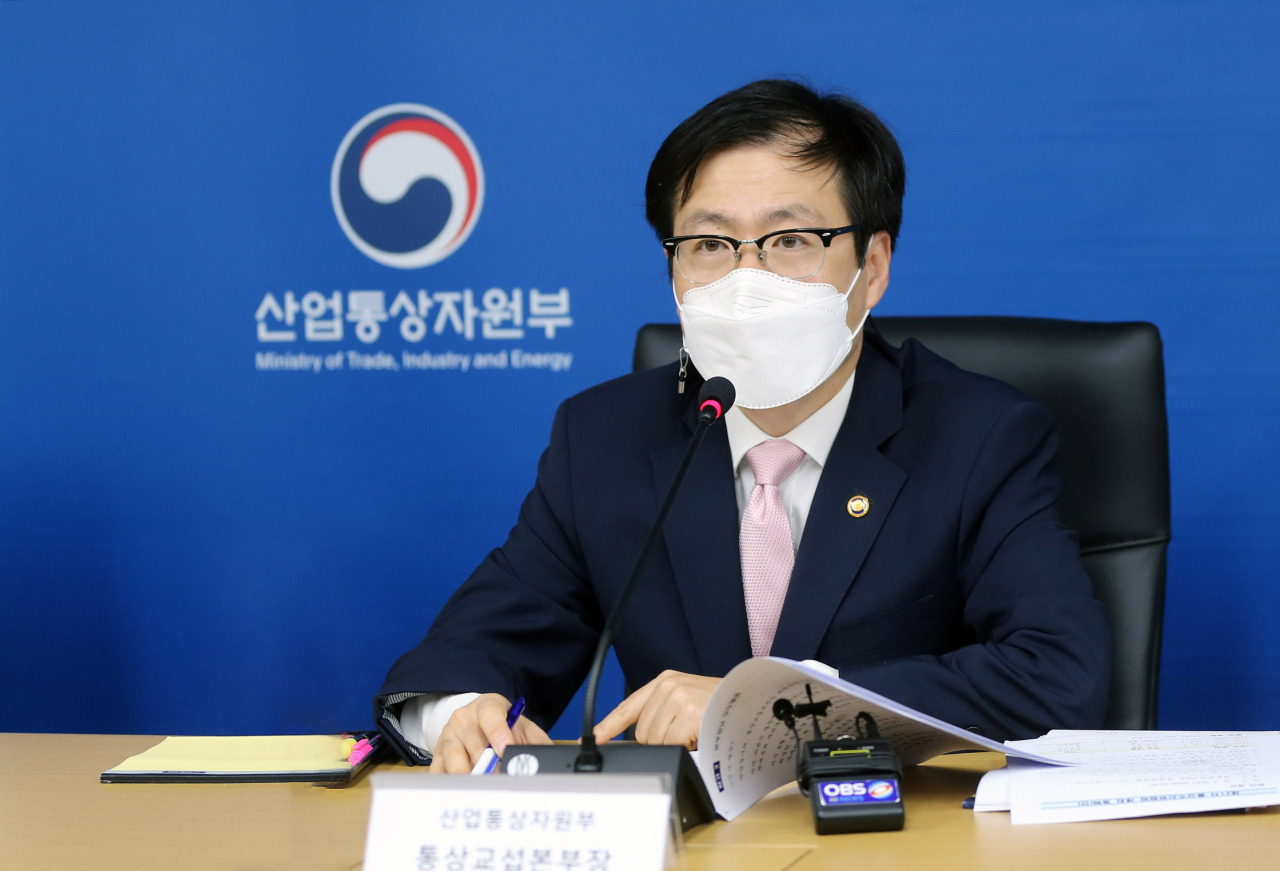S. Korea lays out new approach to trade on five major sectors
New trade minister wants to lead negotiations to maximize national interests
By Kim Byung-wookPublished : Sept. 2, 2021 - 15:31

South Korea will take a new approach to trade on five core sectors in a bid to maximize its national interests, the country’s trade minister said Thursday.
Presiding over his first trade committee meeting at the government complex in Sejong, newly appointed chief negotiator Yeo Han-koo called for a differentiated, creative and vigilant trade strategy on supply chain, vaccine, carbon neutrality and climate change, technology-based trade and digital commerce.
“Korea will take initiative and lead the new global trade order,” said the trade minister, adding that the paradigm is radically changing amid the pandemic.
Under his leadership, Korea will seek to benchmark the US and bolster supply chains on chips, batteries, critical minerals and pharmaceuticals -- four key items mentioned in the Biden administration’s 100-day supply chain assessment report released in February, the Trade Ministry said in a press release.
Before the US releases another 100-day supply chain report on six major fields -- defense, public health, technology and communications, energy, transportation and food -- Korea will discuss fostering a closer partnership with the US preemptively and maximize its national interests.
Also, to prepare for the next COVID-19 pandemic, Korea, which is struggling with vaccine shortages, will pursue a global vaccine manufacturing hub strategy to nurture the vaccine industry as a new engine of economic growth.
As Korea lacks the original technology to develop its own vaccines, the country will chiefly focus on what goes inside the shots.
Korea will provide necessary support for vaccine material companies to enter the global vaccine supply and launch overseas bases in countries where major vaccine manufacturers are located.
The country will seek to lower tariffs on vaccine materials through partnership with the World Trade Organization member countries, the ministry said.
As the US and China are mulling their own versions of carbon tax inspired by the European Union’s carbon border adjustment mechanism, or CBAM, announced in July, Korea will make efforts to have its carbon neutrality and climate change efforts recognized on the international stage.
Digital commerce is another sector where opportunities lie ahead. The pandemic is forcing countries to sign contracts digitally, but international digital trade norms remain undecided.
To become the “rule setter” of digital trade, Korea is looking for allies, and has plans to finalize the Korea-Singapore Digital Partnership Agreement and to launch negotiations to join the Singapore-New Zealand-Chile Digital Economy Partnership Agreement.
Also, by utilizing new technologies such as artificial intelligence and 5G, Korea aims to lead technology-based trade and set up customized strategies based on the counterpart’s technological maturity and market potential.
On Aug. 30, Korea launched a task force on vaccine production. Task forces for the other four key areas will be established this month.
Thursday’s meeting also discussed pending trade issues, such as South Korea’s potential entry into the Comprehensive and Progressive Agreement for Trans-Pacific Partnership a well as the parliamentary ratification process for the Regional Comprehensive Economic Partnership, a free trade agreement among the Asia-Pacific nations.
Korea joined RCEP in November and plans to submit a ratification motion this month to the National Assembly.







![[KH Explains] Hyundai's full hybrid edge to pay off amid slow transition to pure EVs](http://res.heraldm.com/phpwas/restmb_idxmake.php?idx=644&simg=/content/image/2024/04/18/20240418050645_0.jpg&u=20240419100350)






![[From the Scene] Monks, Buddhists hail return of remains of Buddhas](http://res.heraldm.com/phpwas/restmb_idxmake.php?idx=652&simg=/content/image/2024/04/19/20240419050617_0.jpg&u=20240419175937)

![[KH Explains] Hyundai's full hybrid edge to pay off amid slow transition to pure EVs](http://res.heraldm.com/phpwas/restmb_idxmake.php?idx=652&simg=/content/image/2024/04/18/20240418050645_0.jpg&u=20240419100350)

![[Today’s K-pop] Illit drops debut single remix](http://res.heraldm.com/phpwas/restmb_idxmake.php?idx=642&simg=/content/image/2024/04/19/20240419050612_0.jpg&u=)